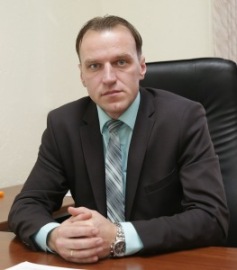The Belarusian State Agricultural Academy has extensive experience in the field of international cooperation, the beginning of which dates back to 1848. Almost from the very beginning the Gory-Gorki Farming Institute (taking into account that there were similar universities in several countries of Europe by that time) found it necessary to study foreign languages in order to analyze the state of various agricultural industries in European countries.
In the second half of the 20th century, due to the broadening of international relations, the Belarusian State Agricultural Academy admitted its first foreign students. In 1962, the BSAA started teaching Russian for foreign citizens and organized the section "Russian as Foreign Language" at the Department of Foreign Languages.
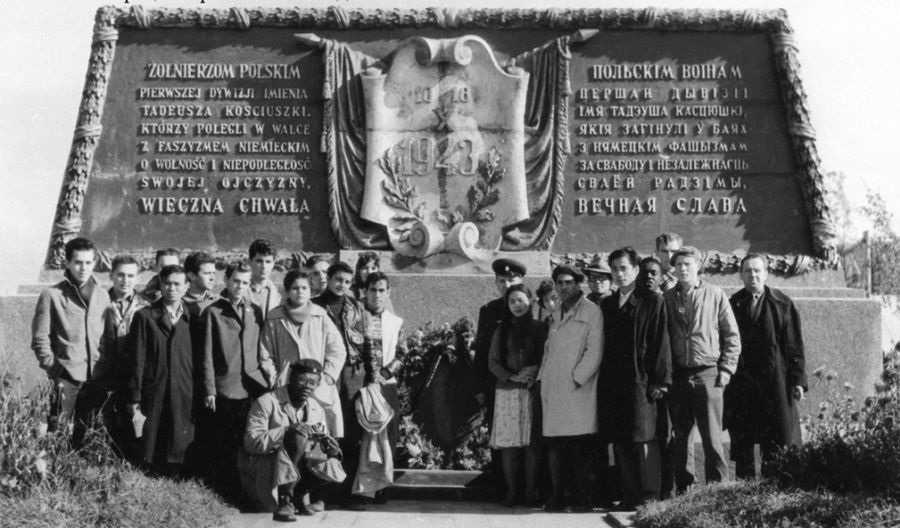
Photo 1 - foreign students of the academy near the monument to Polish warriors in the village of Lenino, Gorki district, 1962.
In 1964/65 academic year, 34 foreign students studied at the academy (9 from Cuba, 6 from Hungary and 19 from Vietnam).
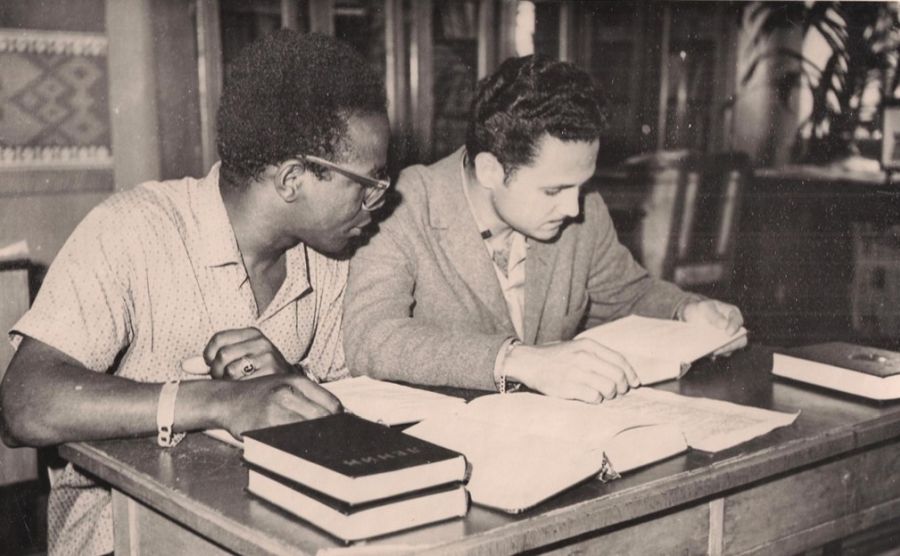
Photo 2 - the first students of BSAA from Cuba.
The first foreign graduates, when leaving back home from the USSR in 1967, cordially thanked the teachers of the academy for their knowledge, and noted that they had got many real friends at the academy. The Soviet Union, as well as the Academy became very close and dear for them. "These five years which we had been studying at the Belarusian Agricultural Academy," - said Hoang Fung Mi, a citizen of the Democratic Republic of Vietnam, - "would remain for life in our memory, and in our hearts. During these years, Belarus has become our second Motherland, the Academy is our home, and the students and teachers of the academy are our family. We have never felt ourselves aliens here".
In the following years, the number of foreign students in BSAA had been growing continuously. While in 1967 there were 56 students from foreign countries, then in 1975/76 academic year 173 foreign students and postgraduate students from almost 30 countries were studying here.
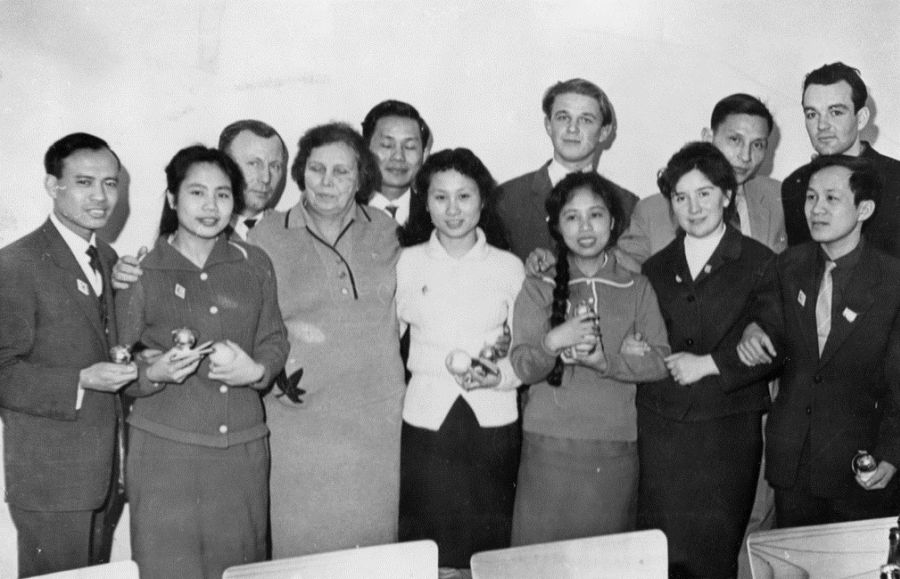
Photo 3 - the first graduates from the Democratic Republic of Vietnam.
In the late 1960s, BSAA admitted it’s first students from Mali, and on 13 April 1970 the Ambassador of Mali paid an official visit to the Academy.
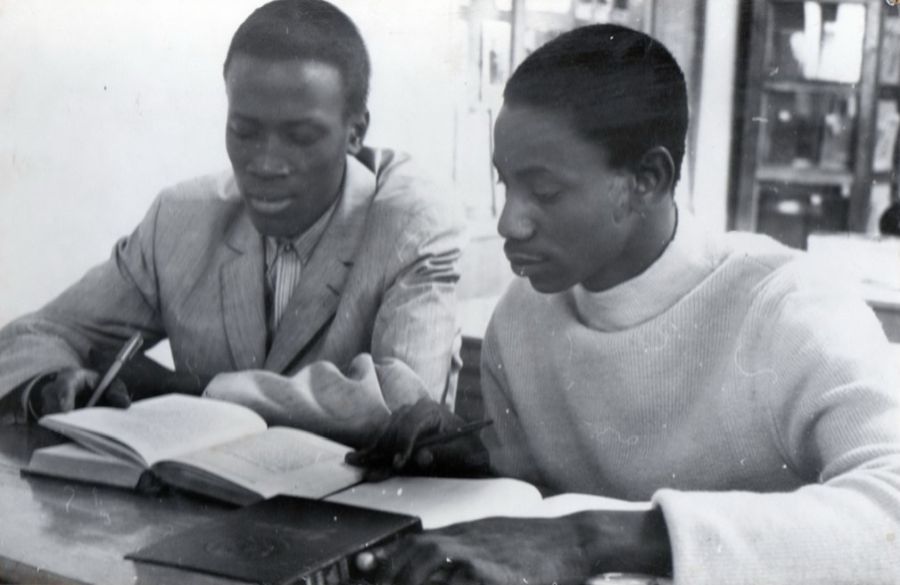
Photo 4 - the first students of BSAA from Mali.
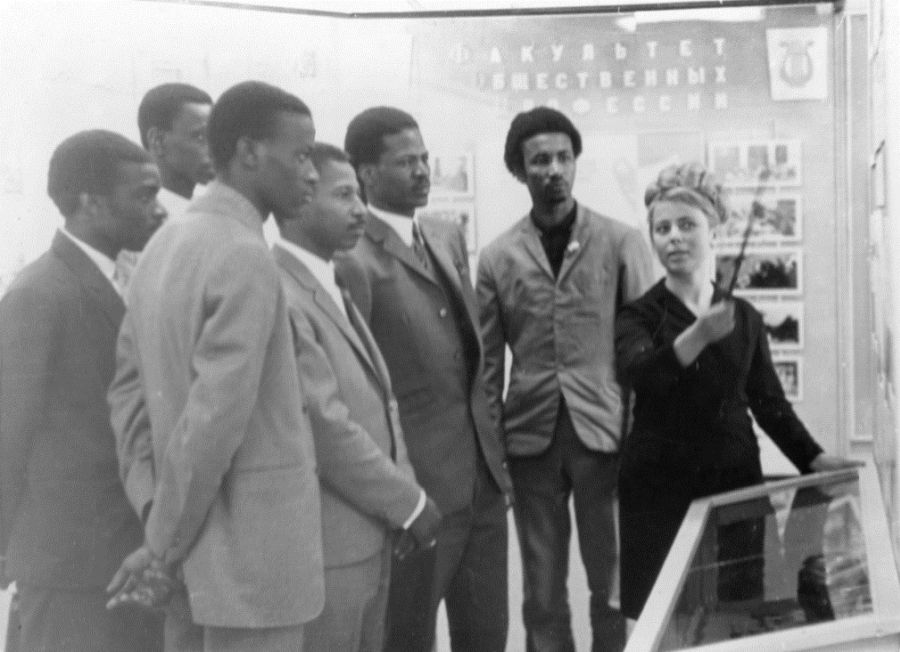
Photo 5 - the visit of Ambassador of Mali to BSAA Museum.
The increasing number of foreign students led to introducing the position of Deputy Dean for the work with foreign students at all faculties (1973), and the Dean’s Office for Foreign Students was soon established (1974). In 1975, the BSAA formed the department of Russian as foreign language, and in 1977 a preparatory faculty for foreign citizens was established.
In different years the following specialists had been working as the deans of foreign students faculty: P.A. Kovalyov (1974-1976, 1981), V.K. Zemlyakov (1976-1978), K .P. Suchkov (1978-1980), S.A. Belchik (1981-1985), V.I. Popytayev (1986-1991), A .B. Klochkov (1991-1993), A.H. Kartashevich (1993-1996), S.A. Noskova (1996-2012).
B.V. Balobin (1977-1982), P.A. Kovalev (1982-1985), and M.M. Murtazayev (1985-1991) had been the deans of the preparatory faculty for foreign students until this faculty and the foreign students faculty merged in 1991.
The number of foreign students increased each year and required to resolve many issues related to the improvement of the educational process and living conditions. These were constantly the focus of students’ self-government, the deans’ offices, and the departments.
In order to improve educational work with foreign students and to provide systematic assistance to their public organizations, mentors and tutors were appointed to diaspora communities. Their work was coordinated by the Council of Mentors headed by P.N. Koturanov, Vice-Rector for International Relations. Experienced lecturers, mainly social scientists and teachers of Russian language departments, maintained close contact with the most active students among foreign citizens, helped in solving problem issues of study, life and recreation. Seminars, exchange of work experience were held for teachers who worked with foreign students. A regional studies department at the Evening Classes of Marxism-Leninism was opened as well.
High priority was given to the work with the activists of diaspora communities. The training of the activists was carried out in a special seminar. At the party committee, classes were held at a two-year school for foreign students, members of communist and working parties. The Komsomol committee held classes for members of Komsomol organizations, concluded agreements of friendship and cooperation with youth organizations, representatives of which were trained at the Academy: The Polish People's Republic, Laos, Cuba, Vietnam, Afghanistan; with youth organizations of Panama, Syria, Iran, The People 's Democratic Republic of Yemen, and Ethiopia.
When studying a number of disciplines, foreign students were divided into separate groups, and special courses on profiling subjects were developed for them, taking into account the peculiarities of regions and countries. The Departments of Social Sciences began to involve foreign students more intensively in the writing of essays, in students’ scientific conferences dedicated to significant dates and social and political events, contests and competitions on the best knowledge of Russian language, history and politics. Methodological manuals and recommendations for the self-employment of students were published, and additional classes and consultations were held. All this ensured high academic performance of foreign students. Many of them got "good" and "excellent" in their studies, and received diplomas with honors in the end.
Before leaving for their homeland graduates made records in a special magazine about their stay in our country, and expressed their wishes. Here is what they wrote: "I want to thank from the bottom of my heart the great Soviet people for the constant assistance they provide to developing countries in training national specialists" (Vogayehu Ammayehu, Ethiopia). "The time spent in the USSR gave us the opportunity to see real socialism with our own eyes. I’ve got excellent impressions" (Rakotondrafara Zacason, Madagascar). "I’m immensely grateful to the Soviet government for its help, the USSR will remain forever in my heart" (Balde Alpha Mamadou, Guinea). "The Soviet Union has been and will remain forever my second Motherland" (Daudinot Isabel, Cuba). These records show that the Academy handled the task of training specialists for developing countries with honor.
The number of foreign students at the academy had more than doubled by the year of 1985, when the academy had 393 students, postgraduate and preparatory students from 53 socialist and developing countries in Europe, Asia, Africa and Latin America.
In 1988, 414 foreign citizens from 46 socialist countries and countries of Asia, Africa and Latin America studied at the academy.
On September 1, 2012, the Faculty of International Relations and Work with Foreign Students was reorganized into the Faculty of International Relations and Pre-Tertiary Education. The deans of this faculty in different years were: M.V.Potapenko (2012-2014), A.A. Timayev (2014-2017), A.V. Pashkevich (since 2017).
On October 21, 2015, the Center for Chinese Language and Culture was established at the Faculty of International Relations and Pre-Tertiary Education by signing a cooperation agreement between BSAA and Confucius Institute for Science and Technology BNTU.
BNTU 's partner is North-Eastern University of China, located in Shenyang, the capital of Liaoning Province.
The BSAA Centre for Chinese Language and Culture organizes the course of Chinese in beginners, intermediate, upper-intermediate, and advanced level groups under the guidance of a language teacher who is a native speaker. During 2016-2020, more than 320 people were engaged in the Center for Chinese Language and Culture. Chinese language is taught by Chinese citizens, graduates of the Faculty of Philology of the North-Eastern University of China.
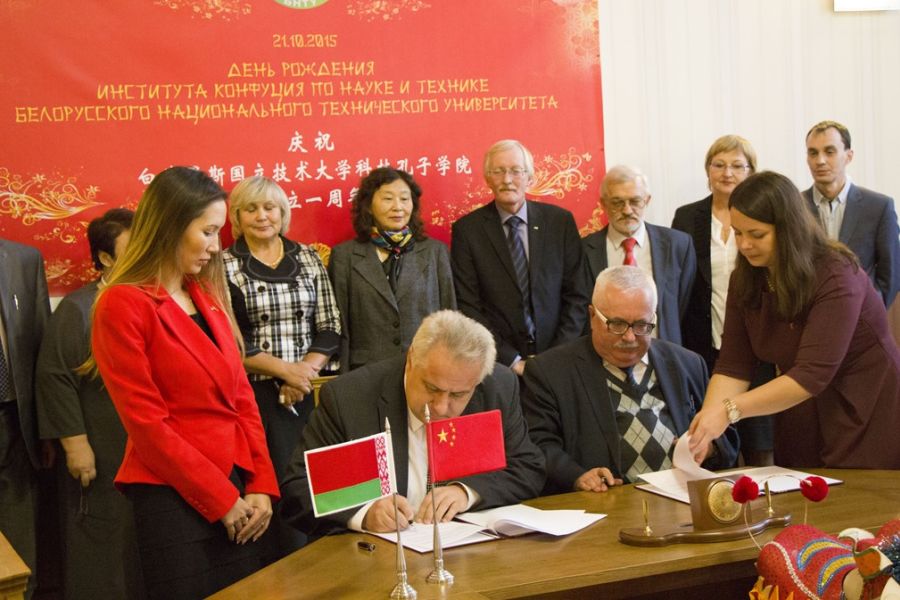
Photo 6 – the signing of the cooperation agreement between BSAA and BNTU about the Chinese Language and Culture Center establishment in BSAA.
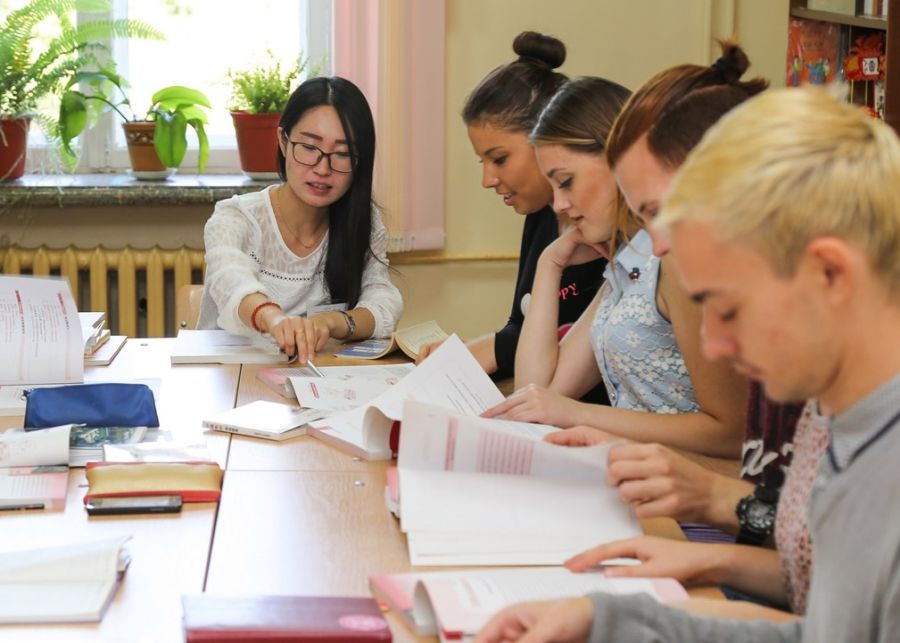
Photo 7 - the lesson is being conducted by the first teacher of the Center for Chinese Language and Culture Han Jingyang.
Participants of the courses are the students and teachers of the academy, as well as schoolchildren and employees of enterprises of the city of Gorki and Gorki district. All of them have a high motivation to study Chinese, many students consider Chinese as a chance to get a new speciality and make Chinese their future work. That’s why they plan to continue studying for several semesters, prepare to take an exam to determine the level of knowledge of Chinese. At present, about 20 students have successfully passed this exam.
Those who attend the courses of Chinese have the opportunity to receive scholarships for study at universities of the People 's Republic of China withing the programmes of language internship, and postgraduate studies. Every year, the Confucius Institute for Science and Technology of BNTU and the North-East University of China organize a two weeks Summer Camp in China, the program of which includes language study, travel through the country, and getting knowledge about the culture and traditions of China.
On December 12, 2019, Rector of BSAA V.V. Velikanov opened the Club of International Friendship at the Faculty of International Relations and Pre-Tertiary Education.
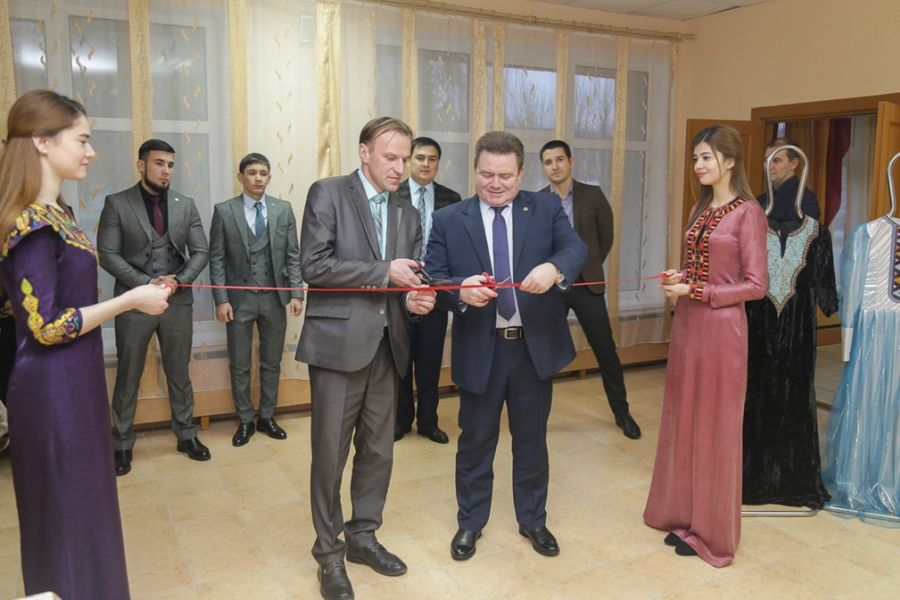
Photo 8 - opening of the Club of International Friendship.
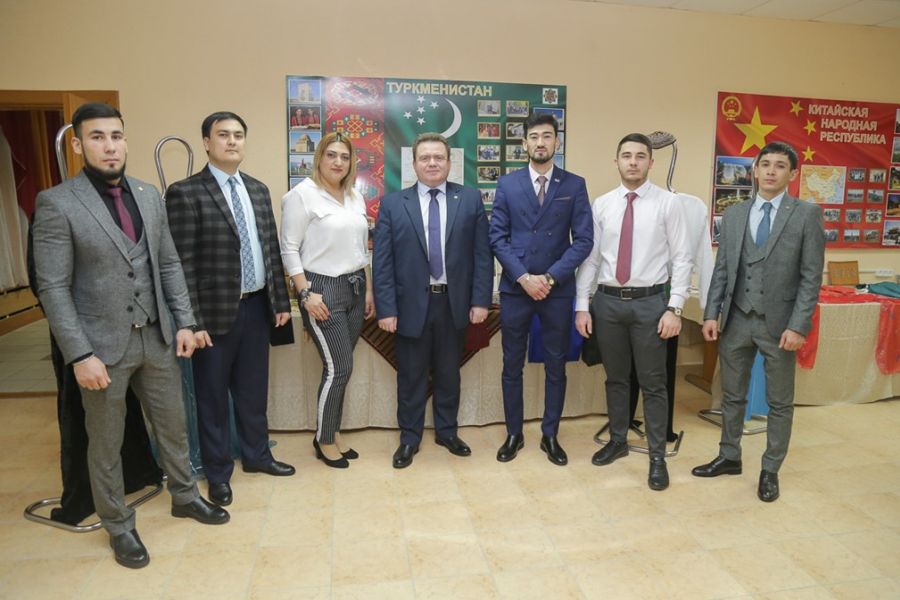
Photo 9 - in the Club of International Friendship.
The Museum of the Club demonstrates the national symbols of the countries, representatives of which study at the Academy. It also displays national clothing of Belarus, Turkmenistan, China and Uzbekistan.
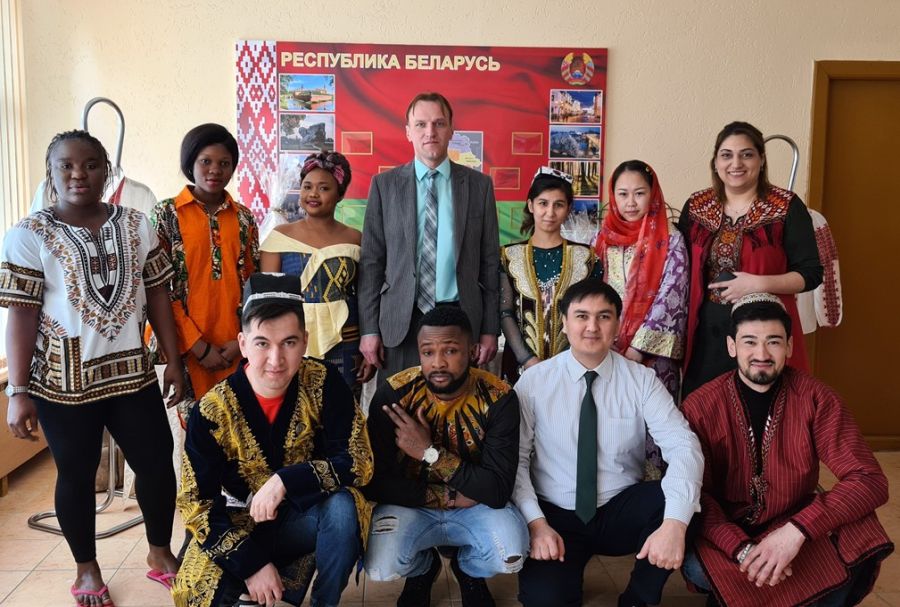
Photo 10 - representatives of various countries in the BSAA Foreign Students Association.
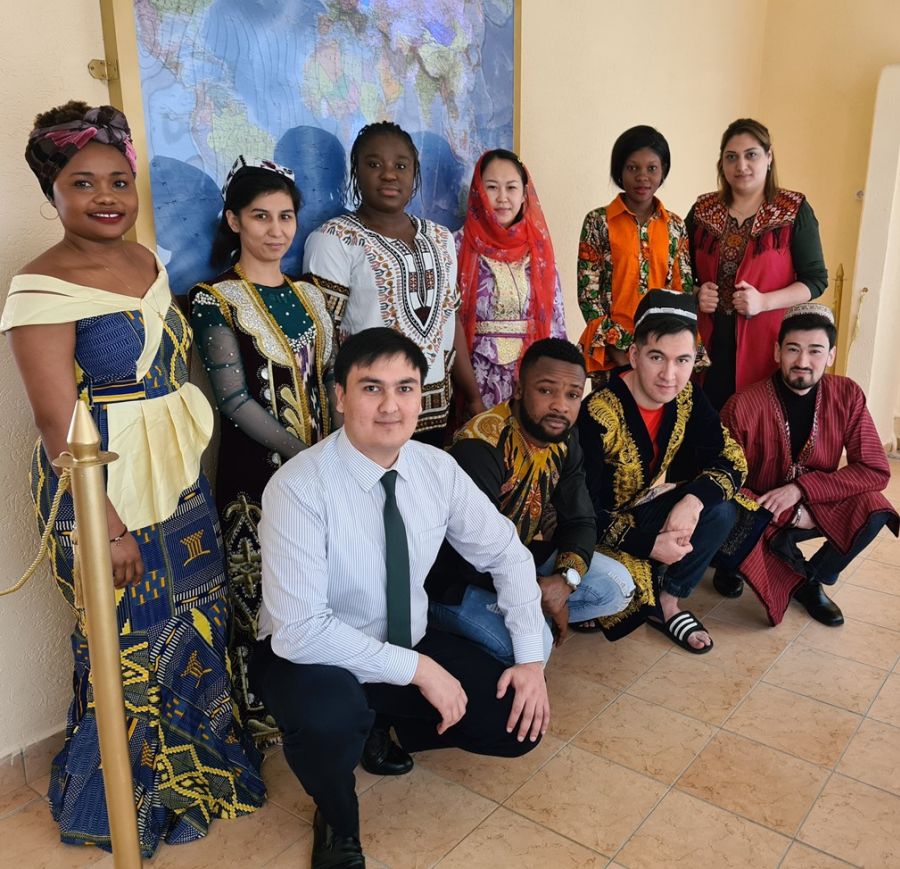
Photo 11 - national costumes of the students from different countries.
In the years since the faculty opening, more than 3,200 foreign citizens from 93 countries have studied at the academy, many of our foreign graduates have achieved significant results in the political and economic activities of their home countries.
At present, the Faculty of International Relations and Pre-Tertiary Education recruits and trains foreign citizens, works in the sphere of international cooperation which is of priority importance for any university.
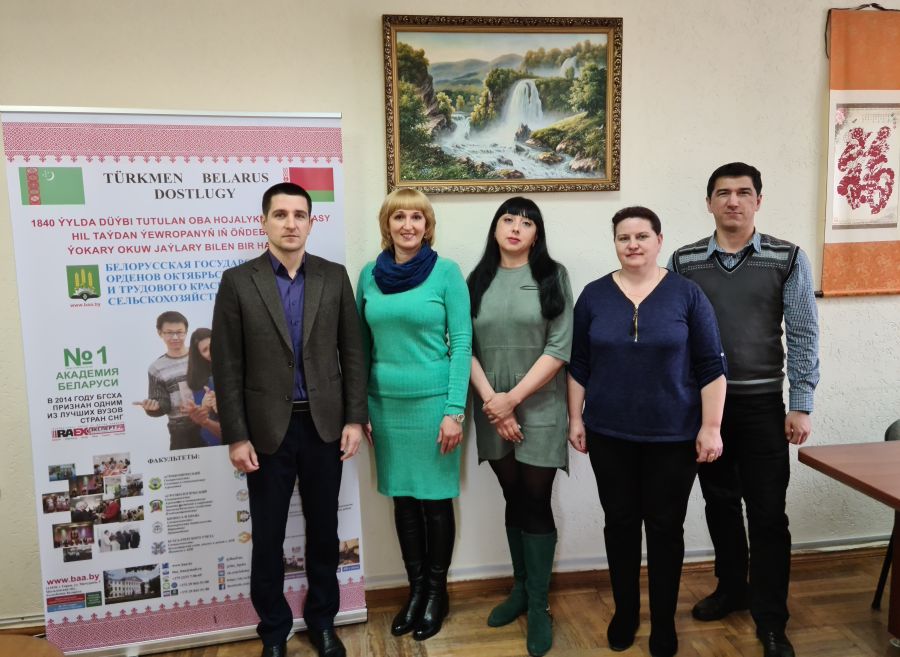
Photo 12 – the workers of the Dean’s Office at the Faculty of International Relations and Pre-Tertiary Education.
In 2020, about 500 foreign students from 14 countries are taught at BSAA, and about 100 foreign citizens receive a higher education diploma every year.
The Faculty of International Relations and Pre-Tertiary Education includes the Dean’s Office, the Department of Linguistic Disciplines and the Department of Physical Education and Sports.
